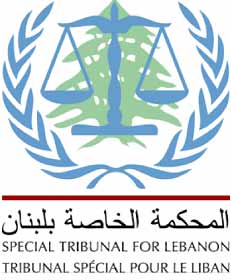
Q: Why only Lebanese journalists and media outlets are being charged with contempt knowing that confidential information published in the past by western media (CBC and Der Spiegel) went unchecked?
A: The tribunal wants to stress that efforts by individuals or the media to disclose confidential material or to undermine the administration of justice are taken very seriously by the STL.
The purpose of contempt proceedings in the first place is to protect the course of justice from wrongful interference with its administration.
Q: What are the legal basis on which the accusation against Mr. Al-Amine and Ms. Khayat were based?
A: The STL is charging New TV and Karma Khayat with contempt of court due to the broadcast of information relating to purported confidential witnesses in a series of programs in 2012 (August 6, 7, 8 and 9). The same reasoning applies to Al-Akhbar newspaper and Ibrahim Al-Amine who published information on purported confidential witnesses on January 15-19, 2013. A third incident is still being investigated.
The publication of names of purported witnesses is a particularly egregious abuse of the power of the press. As the decision points out “the publication of purported confidential witness information must reduce the public’s confidence in the Tribunal and thereby interfere with its administration of justice.” (Par 37) The reporting of the names of the alleged accused, whilst regrettable, does not threaten administration of justice in the same way as the reporting of the names of purported witnesses.
Q: On what basis does the court draw the line between an opinion article and an article that is leaking secret news or trying to mislead the public?
A: The freedom of the press relates both to the freedom of expression and the proper administration of justice. However, the freedom of press cannot impinge upon the tribunal’s ability to function properly as a criminal court and to administer justice for the benefit of the people of Lebanon. The Tribunal’s rules are careful to only punish unlawful conduct that undermines the administration of justice. The rules leave intact the ability of the press to comment and criticize the Tribunal’s work. (Rule 60 bis) It is also important to note that Lebanese law also restricts the freedom of expression when the media publishes confidential material and when they interfere with the administration of justice.
Q: Is it in the jurisdiction of the Special Tribunal for Lebanon to follow on cases that are not directly related to its cause?
A:
Yes. The Tribunal's rules allows for us to hold contempt proceedings if
there is preliminary evidence that someone is interfering with the
administration of justice. This is also a part of the judicial process
and a crucial part in insuring a fair trial.